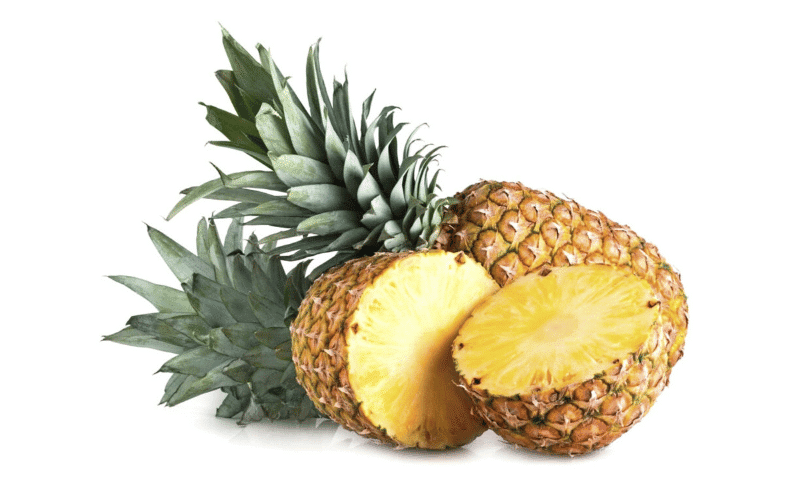10. Pineapple: A Low-Potassium Fruit Option

Pineapple, scientifically known as Ananas comosus, is a sweet and juicy tropical fruit that is enjoyed by people all over the world. It is a highly versatile fruit that can be consumed fresh, canned, or cooked and can be used in a variety of dishes, from sweet to savory.
Pineapple is a good source of vitamins and minerals, including vitamin C, vitamin B6, manganese, and dietary fiber. It is also low in calories and fat, making it a healthy and nutritious addition to any diet.
One of the most important benefits of pineapple for people with kidney failure is its low potassium content. Potassium is a mineral that is important for many bodily functions, but when the kidneys are not functioning properly, too much potassium can build up in the blood, leading to serious health problems. People with kidney failure are often advised to limit their potassium intake, and pineapple is an excellent fruit to include in their diet.
In addition to its low potassium content, pineapple also contains an enzyme called bromelain, which is known for its anti-inflammatory properties. This enzyme can help to reduce inflammation in the body, which is particularly important for people with kidney failure, as chronic inflammation is a common complication of this condition.
Another benefit of pineapple for people with kidney failure is its high vitamin C content. Vitamin C is an antioxidant that helps to protect cells from damage and promotes overall health and well-being. It is also important for maintaining a healthy immune system, which is especially important for people with kidney failure, who are at increased risk for infections and other health problems.
Pineapple is also a good source of dietary fiber, which can help to promote healthy digestion and prevent constipation, a common problem for people with kidney failure.
It is important to note that while pineapple is a nutritious and delicious fruit that can be beneficial for people with kidney failure, it is still important to consult with a healthcare professional before making any changes to your diet. Your healthcare professional can help you determine the right amount of pineapple to include in your diet and ensure that it is safe and appropriate for your individual needs.
You can enjoy pineapple as a snack, add it to fruit salads, or use it as a topping for yogurt or oatmeal. Be sure to consume fresh or frozen pineapple, as canned pineapple may contain added sugar and preservatives. (10)